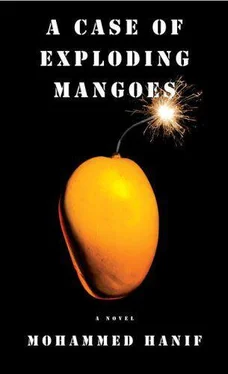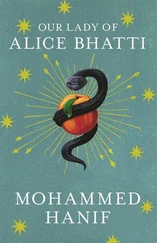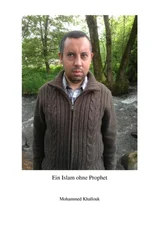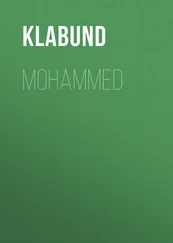“Have you found the plane?” I say, careful not to mention Obaid.
He turns his face towards me; a truck comes at us; I jump in my seat and hold the dashboard. With the slightest movement of the steering wheel, he swerves the car into a service road and parks at a roadside restaurant. He opens the glove compartment, takes the gun and tucks it under his shirt.
He opens the car door then looks back at me. “You and your friend probably think you invented buggery, but it existed long before you started wearing this uniform.”
He orders food. I order dal, he asks for chicken karahi. “Make his special,” he tells the waiter. “Our young man needs nourishment.” We eat in silence. The food is too spicy for my mountain tastes. I need to go to the loo. I am not sure whether I should just get up and go or ask for his permission.
I get up, pointing towards the loo. He signals with his eyes for me to keep sitting. “Maybe you should wait. We won’t be long.”
I look at the turbaned man guarding the restaurant loo and think maybe he is right. Roadside restaurants’ loos are generally filthy and I’d rather be relieving myself in an open field under a star-filled sky rather than in a room full of piss and the smell of spicy shit.
A waiter hovers around us after we finish our dinner, expecting further orders. Major signs his name in the air, the waiter brings the bill, Major scribbles something on it and gets up to leave without paying anything.
He must be a regular here, I think. He must have an account with these people.
The rest of the journey is a battle between the muscles that control my bladder and Major Kiyani’s sudden fit of patriotism. I nod my head enthusiastically when he reminds me that the last time anyone tried to disappear with a plane the country broke into two. I squeeze my thighs and practically jump in my seat when he talks about my dad’s illustrious career. “You know what they said about your dad? That he was one of the ten men standing between the Soviets and the Free World.” I nod my head enthusiastically when he goes on and on about the sacrifices that invisible soldiers like him and my dad have to make for the sake of national security.
I squeeze my thighs. I want to say, “Can I pee first and then we can save the world together?” Our car takes its final turn into a narrow road that leads to the majestically sombre gate of the Lahore Fort.
In the historic city of Lahore, the Fort is a very historic place. It was built by the same guy who built the Taj Mahal, the Mughal King Shahjahan. He was thrown into prison by his own son, a kind of forced premature retirement. I have never been to the Fort but I have seen it in a shampoo ad.
Do I look like the kind of person who needs a lesson in history at midnight? The Fort is clearly closed to tourists. I am sure the Major can get after-hours access anywhere, but shouldn’t he be taking me to an interrogation centre or a safe house or wherever it is that he takes people when he wants to have a chat?
As the car approaches the gate two soldiers emerge from the shadows. The Major slides his window down and stretches his neck out but doesn’t speak. The gate, probably built to accommodate an elephant procession, opens slowly and reveals an abandoned city dreamed up by a doomed king.
Parts of the Fort are dimly lit, revealing bits of its stone walls so wide that horses can gallop on them, gardens so vast and green that they disappear and appear again after you have driven for a while. The Court for the Commons and the Ladies’ Courtyard stand in their crumbling, faded glory. I wonder where the famous Palace of Mirrors is. That’s where they did the shampoo advert.
The only signs of life in this deserted sprawl of useless splendour are two army trucks with their headlights on and engines idling. Major Kiyani parks the car beside these trucks. We get out of the car and start walking towards the Court for the Commons. It’s dimly lit and I can’t really see the source of the light. I expect spear-carrying Mughal soldiers to appear from behind the pillars to take us to the King, who, depending on his mood, would either ask us to join in his late-night debauchery or have our heads chopped off and thrown from the walls of the Fort.
Major Kiyani takes an abrupt turn and we start descending a stairway made of concrete, definitely not built by the Mughals. We enter a vast, empty hall that looks eerily like an aviation hangar. Right in the middle of the hall, sitting under what must be a thousand-watt bulb, is a subedar major who gets up and salutes Major Kiyani as we approach his metal table, which is piled high with heaps of bulging yellow folders.
Major Kiyani nods his head but doesn’t speak a word. He pulls up a chair, grabs a file and starts flicking through the pages as if oblivious to my presence.
Then he remembers.
“Show Under Officer Shigri to the toilet,” he says without looking up from his file. I walk behind the Subedar Major down a well-lit corridor lined with iron doors on both sides, with stencilled white numbers on them. There is absolute silence in the corridor, but behind the doors I can hear the muted snores of dreaming men. At the end of the corridor there is a small rusted iron door without a number. The Subedar Major produces a key, opens the lock and moves aside. I open the door and take a step inside. The door hits my back and is locked behind me. That terrible smell of the closed toilet which has not seen a drop of water for ages welcomes me, my head hits the wall, a thousand-watt bulb is switched on. So bright is the light, so overpowering the stench, that I cannot see anything for the first few moments.
It is a loo, that much is clear. There is a hole in the ground so full of indistinguishable faeces that bubbles are forming on its surface. The floor is covered with a thick slimy layer of some garish liquid. There is a water tap one foot above the ground but it has stayed dry for so long that it’s rusting. There is a grey WC with a broken chain, I open it and take a peek inside. There is two inches of water at: the bottom, reflecting its inner rusted orange surface.
My need to pee has disappeared forever. The stench is so strong that it’s difficult to think about anything else.
I stand against the wall and close my eyes.
They have a file on me somewhere, which says Under Officer Shigri can’t stand dirty bathrooms. I have done my jungle survival course, I have learned how to hunt snakes in the desert and quench my thirst. No one ever thought of designing a course on how to survive stinking bathrooms.
I charge at the door and start banging with both my clenched fists. “Open this bloody door. Get me out of this shithole. This place stinks.”
I bang my head on the door a couple of times and the stupidity of my actions becomes obvious to me. All the shouting takes the edge off the stench. It’s still the smell of piss and shit but somehow it’s become subdued. Or am I already getting used to it?
They are in no mood to interrogate me at this hour. This is going to be my abode for the night.
My back goes to the wall, I clench my toes in my boots and resolve to spend the night standing up. There is no way I am going to give these butchers the pleasure of watching me lie down in this pool of piss. There is scribbling on the wall but I can’t be bothered to read it. I can make out the words General Zia and his mother and sister, my imagination can connect the dots.
The idea that this place has hosted people who were angry enough at the General to write things about his mother and sister is puzzling. I might be down on my luck but the last time I checked I was still a trainee officer in uniform and the fact that they have put me in this shithole for civilians is the ultimate insult.
Colonel Shigri had tried to talk me out of joining the armed forces.
Читать дальше












